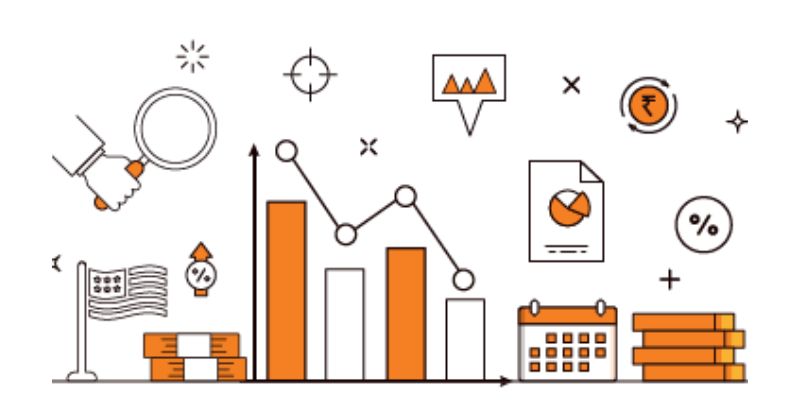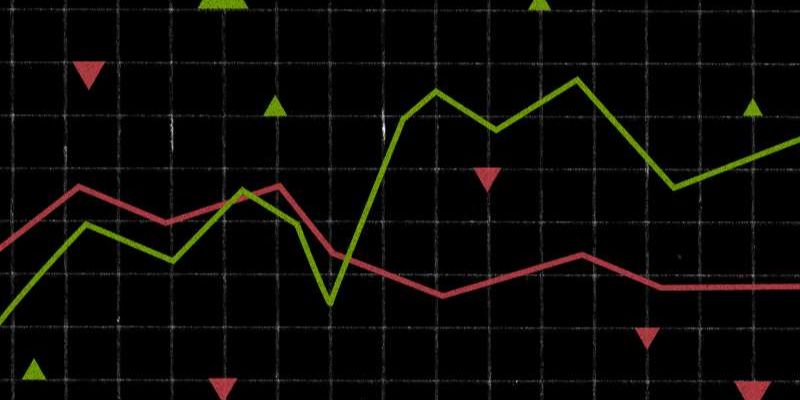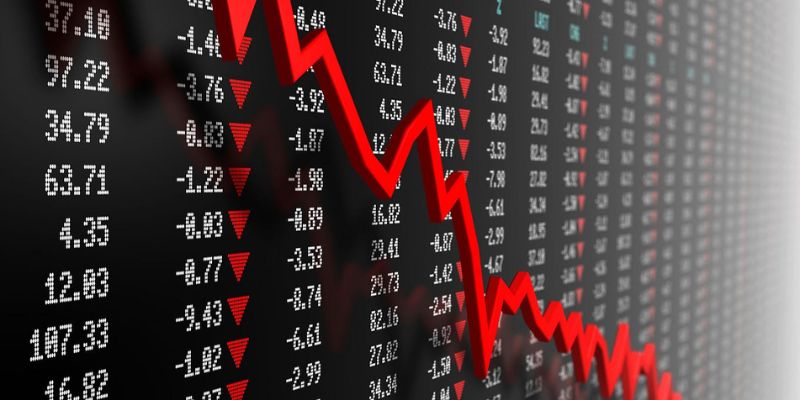Investing in the stock market is like a game of chess. You need a sharp eye for the moves that matter. In this strategy-packed guide, I’ll unlock the factors affecting stock market forecast, giving you an edge. Stick with me to make sense of the economic signals and central bank plays that could steer your portfolio towards checkmate.
Understanding Economic Indicators and Central Bank Roles in Stock Market Forecasting
The Ripple Effect of Economic Indicators on Equity Markets
When prices go up, we call it inflation. Stocks can hate or love this. It depends. Why? High inflation can hurt buying stuff. Companies may sell less and make less money. This can make stock prices go down. But sometimes, inflation means the economy is buzzing, and that’s when stocks might go up.
Now, let’s talk jobs. More jobs mean people have more money to spend. This is good for stocks. But if not enough people are working, they can’t buy things. This can make stock prices drop. It’s like a game of seesaw with jobs on one side and stocks on the other.
Imagine a country growing fast, making more things, and people having more jobs. This is GDP growth. It’s like the score in a game. When the score is high, everyone cheers. That’s what stocks do – they go up. When GDP is low or bad, stocks can feel sad and go down.
How Central Bank Decisions Shape Investor Confidence
Central banks are like umpires in a baseball game. They try to keep the game fair and fun. When they change interest rates, it’s like changing the rules of the game.
If the central bank says, “Let’s lower rates,” it’s easier for people and businesses to borrow money. They can spend more, and this can make stocks happy and go up. But if rates go higher, it’s like telling everyone, “Hold on to your money.” This can slow things down, and stocks might not like it.
Investors always keep an eye on the central bank’s decisions. It helps them guess what might happen next. They want to know: Will businesses grow? Will people buy more stuff? What will happen to stock prices? It’s all about confidence. When investors believe things look good, they might buy more stocks. If they worry, they might sell.
Remember, the central bank has a big job. Their choices can make waves, big or small, in the ocean of stocks. It’s important to watch and understand these moves. It helps people make smart choices with their money.
To sum it up, things like prices, jobs, and the economy’s score (GDP) matter a lot for stocks. And the central bank? They’re like the game’s umpire with a powerful whistle. Their choices can change the game quick. So, when you’re thinking about stocks, it’s smart to keep an eye on these things. It can help you decide when to buy, hold, or sell, and that’s key for smart investing.

Interpreting Macroeconomic Trends for Smarter Stock Investments
Navigating Interest Rates, Inflation, and GDP Growth
We see a big fuss about interest rates, inflation, and GDP. For good reason, too! They’re like the traffic lights of the economy. When central banks change interest rates, it’s like they’re hitting the gas or brakes on the country’s money flow. Low rates? They’re saying “go,” making it cheap to borrow and spend, which can rev up stocks. High rates? That’s a “stop” sign, making loans costly and can slow down the stock market hustle.
Now, inflation is like the economy’s fever. If prices get too hot, the value of what you earn cools down. Your stocks feel this too. When folks can’t buy as much, businesses might earn less. That can lead to stocks taking a nosedive.
GDP growth is like the scorecard of how well our country is doing. If it’s up, it means more goods and services are being made and bought – hooray for company profits and stock prices! But if it’s down, times may be tough, with stocks possibly sliding down with it.
Analyzing Commodity Price Fluctuations and Earnings Reports
Commodities are the raw materials businesses need, like oil and metals. Their prices jump around like kids at a birthday party. When these prices change, they can high-five or trip up stock prices. Think of it as a chain: If oil prices soar, it costs more to make and ship goods. This can slash company profits and shake up stocks.
Earnings reports are like report cards for companies. Investors eye these with eagle vision. They look past the numbers to guess future scores. If the reports hint at more money-making magic in the future, stocks can soar. But if not, they can drop like a hot potato.
And don’t forget, when we’re in the know on these ups and downs, we can make smarter moves in the stock market game. We can become like financial ninjas, dodging troubles and grabbing opportunities for our cash to grow. It’s all about staying on top of these swings and not letting them catch us off guard.

Assessing Market Sentiments and Technological Impacts on Stocks
Leveraging Market Sentiment Analysis in Forecasting
Think about the mood at a big game. It fires up the crowd and can lift a team to win. That’s like market sentiment for stocks. This mood can move markets up or down. You want to know how people feel about the market, right? I dig into this mood, or sentiment. It tells us where stocks might go. I use tools to measure this mood. These tools look at what people buy and sell and how much. They also see what they say online about stocks.
Knowing the mood helps me make smart guesses about stocks. Say many folks feel good and buy a lot. Prices might go up. But if the mood flips and they sell, watch out! Prices could drop. We need to keep our eyes open and read this mood right. It can change quick, and we want to be ready.
Evaluating Technological Advancements and Their Influence on Sector Performance
Tech changes fast. We know it. New gadgets and apps pop up all the time. These changes can shake up how companies do. A new tech can boost a company. It can help them make more stuff for less money. Or sell stuff in new ways. If a company uses the tech first, they can jump ahead of others. So, I look at all the new tech coming out. I try to see who will use it to get ahead.
Some tech changes whole industries. Think about how shopping online changed stores. Or how streaming changed movies and music. When tech like this shows up, I check which sectors may win or lose. Health care, energy, retail, and more can all shift with new tech. I try to spot these changes early. It helps me say how stocks in those areas might do.
Checking out new tech is fun, but we can’t just guess. We’ve got to study hard and think about the future. What will the next big tech be? Who will use it best? These questions guide my work. There’s a lot to think through when we guess where stocks will go. But it’s a cool puzzle to solve. And solving it can really pay off.
Stocks dance to many tunes – the economy, politics, and yes, tech and mood too. Keep your ears open and feet ready. It’s a lively tune, and we’ve got to be in step. I’m here to help you catch the beat. Let’s make those smart moves together.

External Factors Influencing Investment Strategies
Geopolitical Events and Their Economic Repercussions
Let’s dive into the world of stocks. Imagine countries as chess pieces in a big game. When they move, money moves too. Geopolitical events are like surprise chess moves that shake markets. History shows how wars, elections, and big deals between countries can impact stocks a lot.
What is a geopolitical event? It’s an event where countries’ relations or policies cause big waves in the world. This wave hits our stock markets too. Think about it. If two countries have trouble, it can mean less trade. Less trade might lead to higher costs for products. Then, companies may earn less, and their stock prices might drop.
The Interplay between Environmental Sustainability and Stock Valuation
Now, let’s talk green – not cash this time, but our planet. Today, companies that help the Earth can become stars on the stock market stage. Why? Because people want cleaner air, less waste, and they’ll support companies that want the same.
How does being green affect a company’s stock value? If a company works to help the environment, it might attract more customers. More customers usually mean more sales. Also, governments often give perks to these companies. This can make the company’s stock price climb like a vine. Plus, investors nowadays look for stocks with a green thumb. They know it’s not just good for Earth – it’s good for their wallets too.
Remember, investing is like being a captain. You need to watch the seas for storms and find the best routes. Keep an eye on world events and which companies are going green. Make smart moves and you could sail your way to a treasure chest of smart investments.
In this post, we explored how economic signs help us predict stocks. You saw how things like GDP and inflation matter. We learned that what central banks do can make or break market mood. It’s key to look at interest rates, earnings, and even global events. This can steer you to smarter choices in stocks. We also saw tech changes shaking up some sectors. Where the world heads, so do stocks. Always aim to understand these cues for better investing. From rates to tech, they guide our hand. Let’s look sharp. Let’s make smart moves, backed by solid facts. Trust in this process, and let the learning improve our stock game.
Q&A :
What are the major factors that can influence stock market forecasts?
Stock market forecasts can be swayed by a myriad of factors, both economic and non-economic. These typically include changes in interest rates, economic indicators like GDP and employment statistics, company earnings reports, political stability, market sentiment, and global events. Understanding how these elements impact the market can help predict potential trends and investment outcomes.
How do interest rates affect stock market predictions?
Interest rates are a core component in forecasting stock market behavior. When interest rates rise, borrowing costs go up, which can dampen corporate growth and reduce consumer spending. This often leads to a decrease in stock prices. Conversely, when interest rates are lowered, it can stimulate economic growth and lead to a bullish stock market as companies expand and consumers spend more freely.
Why do economic indicators play a crucial role in stock market forecasting?
Economic indicators, such as gross domestic product (GDP), inflation rates, unemployment figures, and retail sales, provide insights into the overall health of the economy. Forecasters use these metrics to gauge whether the economy is expanding or contracting, which can directly impact company earnings and, in turn, affect the stock market. Positive economic growth tends to correlate with a rise in stock market values, while negative growth can lead to market declines.
How does political stability impact stock market forecasts?
Political stability is an essential factor to consider when forecasting stock market trends. Political events, such as elections, policy changes, and geopolitical tensions, can lead to market volatility. Stability tends to breed investor confidence, often leading to a more robust market, whereas political turmoil can create uncertainty, prompting investors to become more cautious, which may cause market dips.
In what ways does market sentiment influence stock market forecasts?
Market sentiment, often described as the attitude or mood of investors, can have a significant impact on stock market predictions. If the overall sentiment is positive, it can lead to higher stock prices as investors are more inclined to buy. Conversely, negative sentiment can result in selling pressures and a drop in stock values. Analysts often look at surveys, investment flows, and other indicators to gauge market sentiment.

